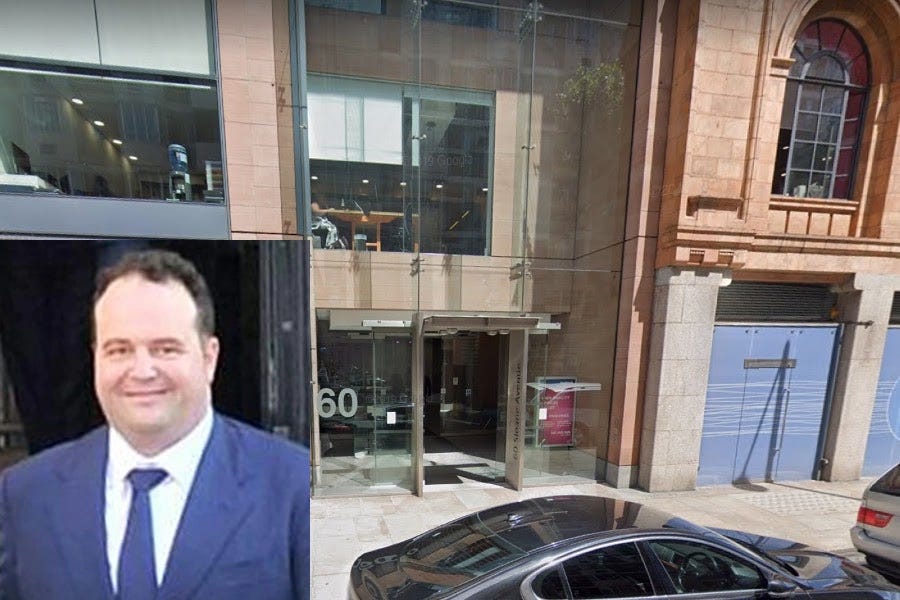An Italian court has canceled an arrest warrant issued for Gianluigi Torzi, the broker at the center of the Vatican financial scandal. The decision, issued by the Roman Court of Review on January 31, is expected to halt an ongoing extradition process for Torzi in the UK, and means the broker would no longer face arrest on his eventual return to Italy.
The review court’s decision follows an October 2021 ruling, in which the Italian Supreme Court of Cassation ordered the review court to reconsider its decision to uphold an arrest warrant issued for Torzi.
The ruling does not drop the charges of tax evasion and money laundering Torzi faces in Italy, and has no effect on the trial currently underway in Vatican City, where Torzi is accused of extortion, embezzlement, fraud, and money laundering. The charges in both jurisdictions are linked to his role in the Holy See’s Secretariat of State’s purchase of a London building in 2018.
The full text of the review court’s decision has not yet been published, but the decision is likely based on the Supreme Court’s finding that Roman prosecutors failed to hand over information and evidence potentially useful to Torzi’s defense during indictment hearings.
Marco Franco, a lawyer working on Torzi’s Italian legal team, said that “justice has been done” in a statement announcing the decision. “Now we will be ready, with due serenity, to face the two trials, the Vatican and the Roman, confident that we will demonstrate the legitimacy of any challenged conduct of our client."
Torzi was first arrested in Vatican City over his role as broker in the 2018 real estate deal in June, 2020. After being held in the Vatican for several days, he agreed to pay a 3 million euro bond and was released. He defaulted on the bond and fled to London, where he has been ever since.
Charges against him were filed in Italy in April, leading to a formal extradition request to the UK authorities and Torzi’s arrest in London.
In October last year, the Supreme Court of Cassation found that Italian prosecutors had failed to share documents and information which could have proved useful for Torzi’s defense, and sent the case back down to the Court of Review in Rome to review their previous decision to uphold the arrest warrant against Torzi.
While the Supreme Court criticized the conduct of Roman prosecutors, it also made clear that Vatican prosecutors had handed over all requested and relevant material to their Italian counterparts and that their decision had no bearing on the ongoing judicial process against Torzi and nine other defendants in Vatican City.
The businessman has been charged by Italian prosecutors with tax evasion, money laundering, and related financial offenses in relation to money he received through his alleged crimes in the Vatican.
Torzi structured the building’s purchase so that ownership of the building came under his Luxembourg holding company, Gutt SA. Torzi was then meant to pass ownership of the company, and the building along with it, to the Vatican. Instead, he restructured Gutt’s shares, creating a new minority class of controlling shares, while passing the ordinary shares on to the secretariat, leaving him with effective control of the building even after the Vatican paid some 350 million euros for it.
Torzi then, according to Vatican prosecutors, extorted the Holy See for millions of euros in exchange for the controlling shares in Gutt, with Pope Francis eventually agreeing the final payment.
Torzi contends that his actions were approved by the Vatican in advance, including by the Secretary of State, Cardinal Pietro Parolin. Prosecutors in the Vatican and Rome have argued that senior Vatican figures approved the deal based on fraudulent legal advice. Several former secretariat officials have been charged with fraudulently amending documents post facto to make Torzi’s actions appear legitimate.
The decision to appoint Torzi as the Vatican representative was made despite him having considerable business links to Mincione.
Torzi’s companies had loaned Mincione millions of euros in the years leading up to 2018, loans made against the value of shares in an Italian bank, the value of which subsequently collapsed. Mincinone, in turn, invested Vatican money in debt products packaged and marketed by Torzi, which he needed to sell in order to satisfy a separate court settlement involving millions of euros of missing government bonds under the control of one of Torzi’s companies.
While Torzi’s legal team have said he is looking forward to demonstrating his innocence in both trials, in Italy and the Vatican, they gave no indication he intends to return to Rome absent a court-issued extradition order.
The Vatican trial is set to resume on February 18.





